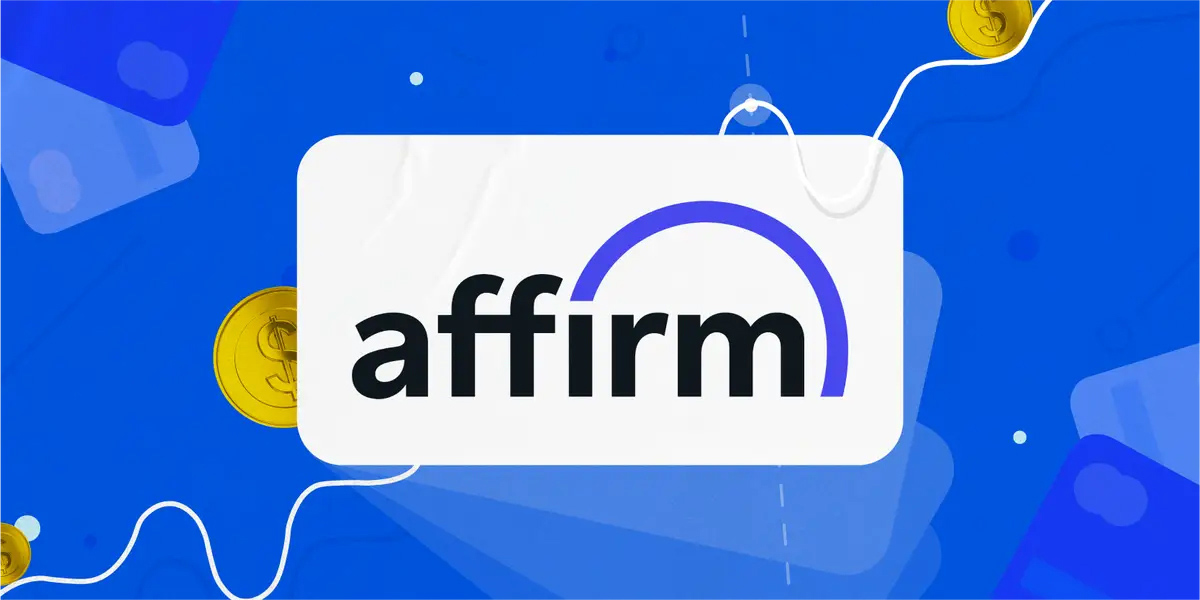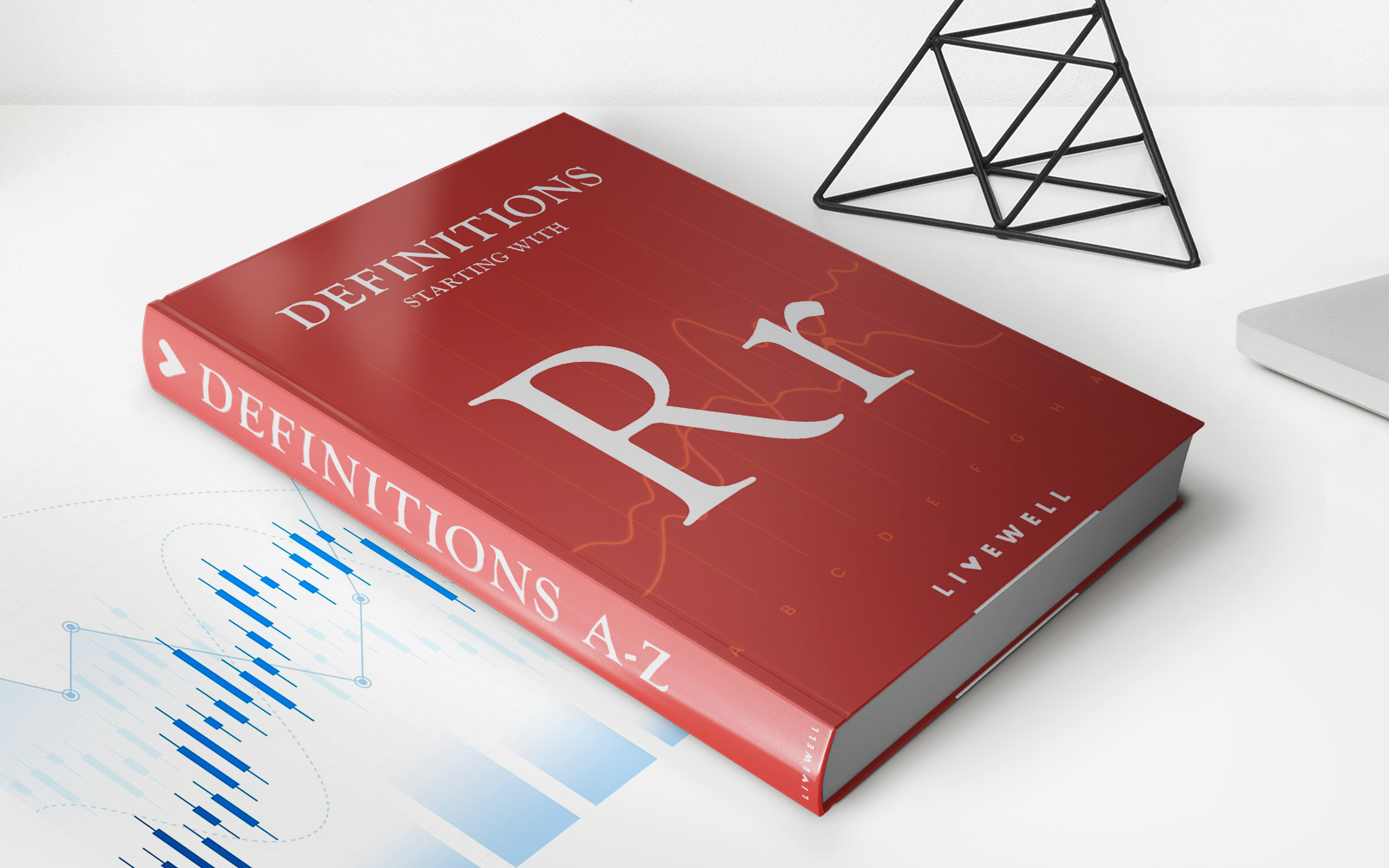

Finance
How To Increase Credit Limit In Discover
Modified: January 15, 2024
Looking to increase your credit limit on your Discover card? Learn effective strategies for managing your finances and boosting your credit limit with our expert tips.
(Many of the links in this article redirect to a specific reviewed product. Your purchase of these products through affiliate links helps to generate commission for LiveWell, at no extra cost. Learn more)
Table of Contents
- Introduction
- Understanding Credit Limits
- Factors Affecting Credit Limit
- Steps to Increase Credit Limit
- Review Your Current Credit Limit
- Pay Your Bills on Time
- Reduce Your Credit Utilization Ratio
- Maintain a Good Credit Score
- Consider a Credit Limit Increase Request
- Use Your Card Responsibly
- Monitor Your Credit Report
- Final Thoughts
Introduction
When it comes to managing your credit, understanding your credit limit is crucial. Your credit limit determines the maximum amount of money you can borrow on your credit card or line of credit. Having a higher credit limit can provide you with greater financial flexibility and opportunities.
Discover is one of the leading issuers of credit cards, and if you’re a Discover cardholder, you may be interested in increasing your credit limit. A higher credit limit can offer advantages such as the ability to make larger purchases, improve your credit utilization ratio, and potentially boost your credit score. Fortunately, increasing your credit limit with Discover is a relatively straightforward process.
In this article, we’ll explore the factors that affect your credit limit and provide you with step-by-step instructions on how to increase your credit limit with Discover. Whether you’re looking to take advantage of your card’s perks or simply want more financial flexibility, increasing your credit limit can be a smart move.
Understanding Credit Limits
Before diving into how to increase your credit limit with Discover, it’s important to understand what a credit limit is and how it impacts your financial life.
A credit limit is the maximum amount of money that a lender, such as a credit card company, is willing to lend you. It represents the borrowing capacity that has been extended to you on your credit card or line of credit. Each credit card or line of credit you have will have its own specific credit limit.
Your credit limit is determined by several factors, including your creditworthiness, income, and overall financial health. When you first apply for a credit card, the issuer will evaluate your credit history and financial situation to determine an initial credit limit for you.
It’s important to note that your credit limit is not a suggestion of how much you should spend. It’s a boundary that sets the maximum amount you can borrow. Exceeding your credit limit can lead to fees, penalties, and potentially damage your credit score.
Now that you have a basic understanding of what a credit limit is, let’s explore the factors that can affect your credit limit and what you can do to increase it.
Factors Affecting Credit Limit
When it comes to determining your credit limit, there are several key factors that lenders consider. Understanding these factors can help you better navigate the process of increasing your credit limit with Discover.
1. Credit History: Your credit history plays a significant role in determining your credit limit. Lenders will review your credit report to assess your payment history, length of credit history, and any negative marks such as late payments or defaults. A strong credit history with a track record of responsible borrowing and on-time payments can increase your chances of being granted a higher credit limit.
2. Income: Your income is another critical factor in determining your credit limit. Lenders want to ensure that you have the necessary means to repay any debts you may incur. A higher income generally indicates a higher credit limit. Be prepared to provide proof of your income, such as pay stubs or tax returns, when requesting a credit limit increase.
3. Credit Utilization Ratio: Your credit utilization ratio is the percentage of your available credit that you are currently using. It’s calculated by dividing your credit card balance by your credit limit. Lenders prefer to see a low credit utilization ratio, typically below 30%. Keeping your credit card balances low and your credit utilization ratio in check can positively impact your credit limit.
4. Payment History: Your payment history is a strong indicator of your creditworthiness. Consistently making on-time payments demonstrates responsibility and reliability. Late or missed payments can have a negative impact on your credit limit and overall creditworthiness.
5. Credit Score: Your credit score is a numerical representation of your creditworthiness. It’s based on various factors, including your credit history, outstanding debts, length of credit history, and types of credit. A high credit score can often translate into a higher credit limit, as it indicates a lower risk for lenders.
Now that you have a better understanding of the factors that can affect your credit limit, let’s explore the steps you can take to increase it with Discover.
Steps to Increase Credit Limit
Increasing your credit limit with Discover is a straightforward process. By following these steps, you can improve your chances of obtaining a higher credit limit and enjoying the benefits that come with it.
- Review Your Current Credit Limit: Start by checking your current credit limit with Discover. This will provide you with a baseline to work with and help you determine how much of an increase you are looking for.
- Pay Your Bills on Time: Consistently making on-time payments is key to building a good credit history. Paying your bills on time shows responsible financial behavior and demonstrates to Discover that you are a reliable borrower.
- Reduce Your Credit Utilization Ratio: Lowering your credit utilization ratio can have a positive impact on your credit limit. Aim to keep your credit card balances low and avoid maxing out your available credit.
- Maintain a Good Credit Score: Your credit score is an important factor in determining your creditworthiness. Make sure to monitor your credit report regularly, address any errors, and work on improving your credit score if needed.
- Consider a Credit Limit Increase Request: If you’ve been a responsible cardholder and have a good payment history, consider requesting a credit limit increase from Discover. You can usually do this by logging into your online account or contacting customer service.
- Use Your Card Responsibly: Continue using your credit card responsibly by making small, regular purchases and paying off the balance in full each month. This will demonstrate to Discover that you can handle a higher credit limit.
- Monitor Your Credit Report: Keep an eye on your credit report to ensure accuracy and identify areas of improvement. Regular monitoring will help you stay on top of your credit health and take necessary actions to increase your credit limit.
Remember, increasing your credit limit with Discover is not guaranteed, but by following these steps, you can enhance your chances of success. It’s important to note that responsible credit utilization and building a strong credit history are ongoing efforts that can benefit you in the long run, regardless of whether you receive a credit limit increase or not.
Now that you know the steps to take, it’s time to put them into action and work towards increasing your credit limit with Discover.
Review Your Current Credit Limit
Before taking any steps to increase your credit limit with Discover, it’s essential to review your current credit limit. This will give you a baseline and help you determine how much of an increase you are looking for.
Log in to your online account or check your latest credit card statement to find out what your current credit limit is. Take note of this number and assess if it meets your financial needs. If you find that your current limit is restrictive or doesn’t provide you with the flexibility you desire, it may be time to consider requesting a credit limit increase.
When reviewing your current credit limit, it’s also a good idea to compare it to the average credit limits for similar credit cards. This will give you a better understanding of where you stand and whether your limit is in line with industry standards. Discover, like other credit card issuers, takes into account various factors when determining credit limits, so it’s important to consider your individual financial situation and creditworthiness.
Keep in mind that a credit limit increase request may require additional information and documentation from you, such as proof of income. Understanding your current credit limit and how it aligns with your financial goals can help you make a more informed decision about whether to proceed with a credit limit increase request.
It’s worth noting that if your current credit limit is already adequate for your needs and you have a good payment history, you may decide not to pursue a credit limit increase at this time. However, if you find that your current limit is not sufficient or if you believe you have a strong case for an increase, it may be worth taking the next steps to request a credit limit increase from Discover.
Now that you have reviewed your current credit limit, let’s move on to the next step, which is crucial for increasing your credit limit: paying your bills on time.
Pay Your Bills on Time
Paying your bills on time is not only crucial for maintaining a good credit history, but it also plays a significant role in increasing your credit limit with Discover. Consistently making on-time payments demonstrates responsible financial behavior and shows lenders that you are a reliable borrower.
Late or missed payments can have a negative impact on your credit score and can also raise concerns for credit card issuers when considering a credit limit increase. When you pay your bills on time, it establishes a positive payment history, which is one of the key factors lenders consider when determining creditworthiness.
To ensure that you make timely payments, consider setting up automatic payments or reminders to help you stay on track. Paying at least the minimum amount due is essential, but it’s even better to pay off your entire balance each month. This shows your ability to manage your finances responsibly and may contribute to a higher credit limit.
If you have a history of late or missed payments, it’s crucial to work towards improving your payment habits before requesting a credit limit increase. Making consistent, on-time payments for several months can demonstrate positive financial behavior and increase your chances of a successful credit limit increase request.
Remember, consistently paying your bills on time is not only important for increasing your credit limit with Discover, but it also benefits your overall financial health. It contributes to a positive credit history, which can help you secure favorable interest rates on loans and future credit opportunities.
Now that you understand the significance of paying your bills on time, let’s move on to the next step in increasing your credit limit: reducing your credit utilization ratio.
Reduce Your Credit Utilization Ratio
Reducing your credit utilization ratio is a crucial step in increasing your credit limit with Discover. Your credit utilization ratio is the percentage of your available credit that you are currently using. Lenders consider this ratio when assessing your creditworthiness.
To lower your credit utilization ratio, you can take the following steps:
- Pay down your balances: Aim to pay off as much of your outstanding credit card balances as possible. By reducing the amount you owe, you can decrease your credit utilization ratio and demonstrate responsible credit management.
- Avoid maxing out your credit cards: Try to keep your credit card balances well below your credit limit. Maxing out your cards can negatively impact your credit utilization ratio and may raise concerns for credit card issuers.
- Consider spreading out your expenses: Instead of using a significant portion of your credit limit in one go, spread out your expenses over multiple billing cycles. This can help keep your credit utilization ratio low and signal responsible credit usage to Discover.
As a general rule, it’s advisable to maintain a credit utilization ratio of 30% or lower. Keeping your credit card balances well below the allocated credit limit shows lenders that you are not overly reliant on credit and have a healthy approach to managing your finances.
Reducing your credit utilization ratio requires discipline and careful budgeting. It’s important to resist the temptation to make large purchases that may push your credit card balances to their limits. By maintaining a low credit utilization ratio, you can position yourself for a higher credit limit in the future.
Keep in mind that reducing your credit utilization ratio may take time, especially if you have outstanding balances. However, by consistently working towards paying down your debts and keeping your credit utilization ratio low, you can improve your chances of successfully increasing your credit limit with Discover.
Now that you have taken steps to reduce your credit utilization ratio, let’s explore the next important factor in increasing your credit limit: maintaining a good credit score.
Maintain a Good Credit Score
Maintaining a good credit score is vital when it comes to increasing your credit limit with Discover. Your credit score is a numerical representation of your creditworthiness, and lenders, including Discover, consider it when making decisions about credit limit increases.
Here are some key steps you can take to maintain a good credit score:
- Pay your bills on time: Timely payments are one of the most significant factors influencing your credit score. By consistently paying your bills on time, you demonstrate responsible financial behavior and build a positive credit history.
- Keep your credit card balances low: Keeping your credit card balances low in relation to your credit limits helps to maintain a healthy credit utilization ratio. Aim to use no more than 30% of your available credit to show lenders that you are not heavily reliant on credit.
- Monitor your credit report: Regularly checking your credit report allows you to identify any errors or discrepancies that could negatively impact your credit score. Dispute any inaccuracies and ensure that your credit report reflects accurate information.
- Avoid opening multiple new credit accounts: Opening too many new credit accounts within a short period of time can lower your credit score. It’s better to focus on managing your existing credit accounts responsibly.
- Diversify your credit mix: Having a mix of different types of credit, such as credit cards, loans, and mortgages, can have a positive impact on your credit score. Lenders see this as a sign of responsible credit management.
Maintaining a good credit score is an ongoing process that requires consistent effort and responsible financial habits. The better your credit score, the more likely you are to be approved for a credit limit increase. It’s recommended to stay vigilant and continue practicing healthy credit habits to protect and improve your credit score.
Keep in mind that the specific credit score requirements for a credit limit increase may vary depending on the credit card issuer. Discover typically offers credit limit increases to cardholders with good payment history and creditworthiness.
Now that you understand the importance of maintaining a good credit score, let’s move on to the next step in increasing your credit limit: considering a credit limit increase request.
Consider a Credit Limit Increase Request
If you have been consistently making on-time payments, maintaining a good credit score, and managing your credit responsibly, it may be time to consider requesting a credit limit increase from Discover.
Here are a few steps you can take when considering a credit limit increase request:
- Review your financial situation: Take a close look at your income, expenses, and overall financial health. Ensure that you have a steady income and can comfortably handle a higher credit limit.
- Check for eligibility: Discover may have specific criteria and guidelines for credit limit increase requests. Review their policies to determine if you meet the necessary requirements.
- Prepare necessary documentation: Gather any documents that may be required to support your credit limit increase request. This could include proof of income, bank statements, or other relevant financial information.
- Apply through the appropriate channels: Reach out to Discover and follow their specific procedure for requesting a credit limit increase. This may involve submitting an online form, contacting customer service, or using the mobile app.
- Explain your request: When making your credit limit increase request, be prepared to explain why you believe you deserve a higher limit. Highlight your responsible credit behavior, consistent payment history, and any improvements in your financial situation.
- Be patient: Understand that credit limit increase decisions are typically made based on various factors, including your credit history and financial standing. It may take some time for Discover to review your request and come to a decision.
While requesting a credit limit increase can be a proactive step, it’s important to note that it is not guaranteed. Discover will evaluate your request based on their own criteria and your individual creditworthiness.
Remember, it’s essential to be realistic about your credit limit increase request. Requesting an excessively high increase may raise concerns for Discover and lead to a rejection. Aim for a reasonable increase that aligns with your financial needs and ability to manage additional credit.
Even if your request for a credit limit increase is not approved, continue practicing responsible credit habits and maintain an open line of communication with Discover. Your credit limit may naturally increase over time as you demonstrate consistent financial responsibility.
Now that you have considered a credit limit increase request, let’s explore the importance of using your credit card responsibly.
Use Your Card Responsibly
Using your credit card responsibly is not only crucial for maintaining good financial health, but it also plays a significant role in increasing your credit limit with Discover. Responsible credit card usage demonstrates to lenders that you can handle a higher credit limit and manage your finances effectively.
Here are some key tips to help you use your credit card responsibly:
- Pay your balance in full: Aim to pay off your credit card balance in full each month to avoid accruing unnecessary interest charges. This shows lenders that you are capable of managing credit responsibly.
- Avoid unnecessary debt: Use your credit card for necessary expenses and avoid unnecessary debts. Make sure that you have the means to repay any charges you make on your card.
- Monitor your spending: Keep track of your credit card expenditures and avoid exceeding your budget. Regularly reviewing your statements can help you identify any unauthorized charges and ensure that your usage aligns with your financial goals.
- Avoid cash advances: Cash advances typically come with high interest rates and fees. It’s best to avoid using your credit card for cash advances unless it’s absolutely necessary.
- Be mindful of credit card rewards: If your Discover card offers rewards or cashback, use them wisely. Take advantage of the benefits without compromising your financial stability.
- Limit new credit applications: Try to avoid applying for multiple credit cards or loans within a short period. Each application can temporarily lower your credit score and raise concerns for lenders.
Using your credit card responsibly not only builds a good credit history but demonstrates to Discover that you are a reliable borrower. Responsible credit usage can increase your chances of a successful credit limit increase request and potentially lead to future credit limit adjustments.
Remember, the key to using your credit card responsibly lies in staying within your means, making timely payments, and maintaining a healthy financial balance.
Now that you understand the importance of using your credit card responsibly, let’s move on to the final step in increasing your credit limit: monitoring your credit report.
Monitor Your Credit Report
Monitoring your credit report is an essential step in increasing your credit limit with Discover. Your credit report provides valuable information about your credit history and can help you identify any errors or discrepancies that may be impacting your creditworthiness.
Here’s why monitoring your credit report is important:
- Identify errors: Mistakes can happen, and errors on your credit report can negatively impact your credit score. By regularly reviewing your credit report, you can catch and dispute any inaccuracies, ensuring that your credit profile is accurate and reflects your true financial history.
- Track your progress: Monitoring your credit report allows you to track your credit journey over time. You can see how your credit score and credit history are improving as a result of your responsible financial habits.
- Identify areas of improvement: Reviewing your credit report can help you identify areas where you can improve your creditworthiness further. It may highlight factors such as high credit card balances, late payments, or accounts in collections that need your attention.
- Stay alert for fraud: Regularly checking your credit report can help you spot any suspicious or unauthorized activities. This allows you to take immediate action if you suspect any identity theft or fraudulent activity on your accounts.
You are entitled to a free credit report from each of the three major credit reporting bureaus (Equifax, Experian, and TransUnion) once a year. Take advantage of this opportunity and review your credit report for any discrepancies or areas that require attention.
Discover also provides free access to your FICO® Credit Score, which can give you an overview of your creditworthiness. Monitoring your credit score can help you understand how lenders may view your creditworthiness and guide you in your efforts to increase your credit limit.
By regularly monitoring your credit report and addressing any issues promptly, you can maintain a strong credit profile and improve your chances of a successful credit limit increase with Discover.
Now that you understand the importance of monitoring your credit report, let’s move on to the final thoughts on increasing your credit limit with Discover.
Final Thoughts
Increasing your credit limit with Discover can provide you with greater financial flexibility and opportunities. By following the steps outlined in this article, you can improve your chances of obtaining a higher credit limit.
Remember that increasing your credit limit is not solely based on your request alone. Discover considers various factors, including your credit history, payment behavior, and overall financial health. It’s important to demonstrate responsible credit usage and maintain a good credit score to increase your chances of success.
Additionally, increasing your credit limit should not be viewed as an invitation to accumulate more debt. It’s crucial to continue using your credit card responsibly and within your means. Avoid overspending and focus on paying off your balances in full each month to maintain a healthy financial status.
If your credit limit increase request is not approved, don’t get discouraged. Review your financial habits, continue practicing responsible credit management, and consider reapplying in the future when your creditworthiness has improved.
Finally, remember to regularly monitor your credit report for accuracy and to track your progress. By staying informed about your credit health, you can make informed decisions and take necessary actions to maintain a strong credit profile.
Increasing your credit limit with Discover is a gradual process that requires patience, discipline, and responsible financial habits. By following the steps outlined in this article and maintaining good credit practices, you can work towards securing a higher credit limit and enjoy the benefits it offers.
Now it’s time to take action and apply these strategies to increase your credit limit with Discover. Best of luck on your journey to financial empowerment!














